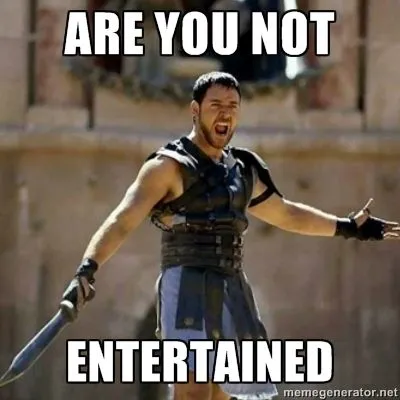Everyone wants to be a bodybuilder; nobody wants to lift no heavy ass weights” – Ronnie Coleman

Pearls of wisdom can sometimes emerge from unlikely sources.
For the record Ronnie Coleman is arguably the greatest bodybuilder of all time, he was Mr. Olympia for eight years in a row. He started off as a powerlifter before moving onto the sport of bodybuilding. He was notorious for moving insane amounts of weight, even by the standards of elite bodybuilders. He would squat and deadlift 800+ lbs. even when he wasn’t training to be a powerlifter.
In the same vein, everyone wants to be a good investor. Who doesn’t want to invest into 20 good companies and become worth a lot of money through passive income? Investing offers one of the best reward-to-effort ratios in life, especially to those who can do a good job of it. Not everyone is willing to do what it takes though, nor can too many people do it well over a long period of time.
The fact is that the best investors eventually gravitate towards doing this full time. There are many examples of how people kept their day jobs and made enough money from the markets over decades. The question to ask would be how many of them can replicate their success all over again in today’s context? Not too many going by what I’ve seen, and I’ve known some of them reasonably well. These investors have had many duds in their portfolio, just that 2-3 stocks paid off handsomely and covered up a lot of their sub-optimal decisions.
One also needs to remember that context matters. The investing environment in India today is very different from that in the 1990’s, the market is relatively better discovered and researched. Many of these “successful investors” from the 90’s cannot read balance sheets to save their lives, a good chunk of their success can be attributed to the fact that they had the courage to participate in the market when most others stayed away.
What does it take to be a good investor?
Not that I have this part fully figured out, I just happen to know enough good investors to make a few intelligent deductions. One of the more underrated aspects of investing is the psychological profile it calls for. Not every high IQ individual can become a good investor, neither can someone become a good investor purely through discipline. SIP’s into mutual funds won’t make you rich, anyone who reads my posts here already knows this.
Here are a few broad traits that can be reliable indicators over the medium term. Please note that these aren’t skills that can be acquired. These is more about “who you are” rather than “what skills do you have”
Can you sit at one place, read and think for hours together?
One day does not count, neither does one year. You need to be able to do this over decades. If you have always preferred activity and consensus over independent thinking, stay away from investing directly. You are just cannon fodder for the serious investors out there. They profit off folks like you.
What do you prioritize regularly? Intellectual development or entertainment?
This holds good for success at anything, not just investing. If you would rather spend time on social media craving entertainment rather than doing some introspection, there is a very slim chance you have the psychological aptitude to become a good investor. Your IQ may be above average but that does not count for much beyond a point. Not that entertainment is bad, just that it doesn’t get you anywhere.
Do you get worked up over the latest topics that make the breaking news?
Someone somewhere is having a tough time, someone else is having a gala time; you can’t do much about it. The prime objective of the media/news is to provoke emotional responses and to keep life entertaining, not to educate. Entertainment and emotions sell, development does not. Don’t blame the media, they are just giving people what they want.
Most people want to be entertained, it has always been this way.

Do you see the world through the value lens? Or do you see what you want to see?
Good investors are dispassionate and objective for the most part, I am yet to see emotional people who became good investors. Mistakes do happen even after one becomes very objective, but if you start making decisions based on how you feel, you are a sitting duck in the markets. You will pull the wrong trigger at perfectly the wrong time to do so. I have seen this so many times that it is not funny anymore. Behavioral finance as a discipline exists for a good reason.
Are you numerate enough?
If you can’t think in terms of range of outcomes and probabilities, the numbers will eventually work against you. If you have never calculated what the return is on your real estate investment is, you don’t yet think well enough numerically. Ideally you should not only calculate the return on your real estate investment, you should also benchmark it with how much bank FD’s have yielded over the same tenure. Buying a house for 50 lakhs in 2006 and selling it for 1.2 Cr in 2020 is a bad investment outcome, more so if you funded the purchase with debt. Try explaining this to the average person, you just can’t.
If you can’t see outcomes in the context of numbers, stay away from investing directly. Your 99% in the CAT QA and DI sections do not count. They just inflate your ego, not your returns.
Is your understanding of human nature based on how the world actually is?
This is a tough one to comprehend, good investors understand human nature well enough at a subconscious level. They know very well that money and power can either be good or bad, there are no absolute truths in this sense. Through the COVID crash asset owners increased their net worth while warming their chairs when the average bloke out there suffered in his profession/business. My profit is somebody else’s loss more often than not, the world has always been this way. We cannot all win at the same time. You either play the game well enough to succeed or you play it badly enough to lose. The world cares about winners and losers, not so much about fairness and equality.
Do you take accountability for sub optimal outcomes? Do you care more about processes or about outcomes?
When you make money, it is because you did things right. But when you lose money, something is wrong with the world.
Unless you can see through your own bullshit, you won’t make the cut. Sometimes you get hammered even after you do things right, but a good process works well more often than not. People who evaluate themselves solely based on outcomes can’t see through their own bullshit. When it works, they take the credit. When it doesn’t, they find someone else to blame for it.
Good investors track the strike rate of all the bets they make without caring too much about one particular bet. Care about your global maxima, not about local maxima.
Can you embrace uncertainty and risk?
Identifying risk is a beginner skill, managing risk is an intermediate skill, making risk work for you is an advanced skill.
The risks that scare you are different from the risks that eventually kill you (Credit: Freakonomics)
It should be rather obvious that this is not a comprehensive list, this blog is not about perfection or about writing peer reviewed scientific papers. But this is not a frivolous list either, this is based on a decade of being a ground up investor who has seen some success. It is also based on regular interactions with many other investors who have seen a respectable amount of success.
This is based on what works on the ground, things that can be verified to be observably true. This is the central tenet of this blog; focus on what works, not on what feels right.
Most of the things I write about here are of a qualitative nature, the most important concepts in life are all this way. If these concepts were that obvious and quantifiable, every person out there would be smart, successful and rich.








